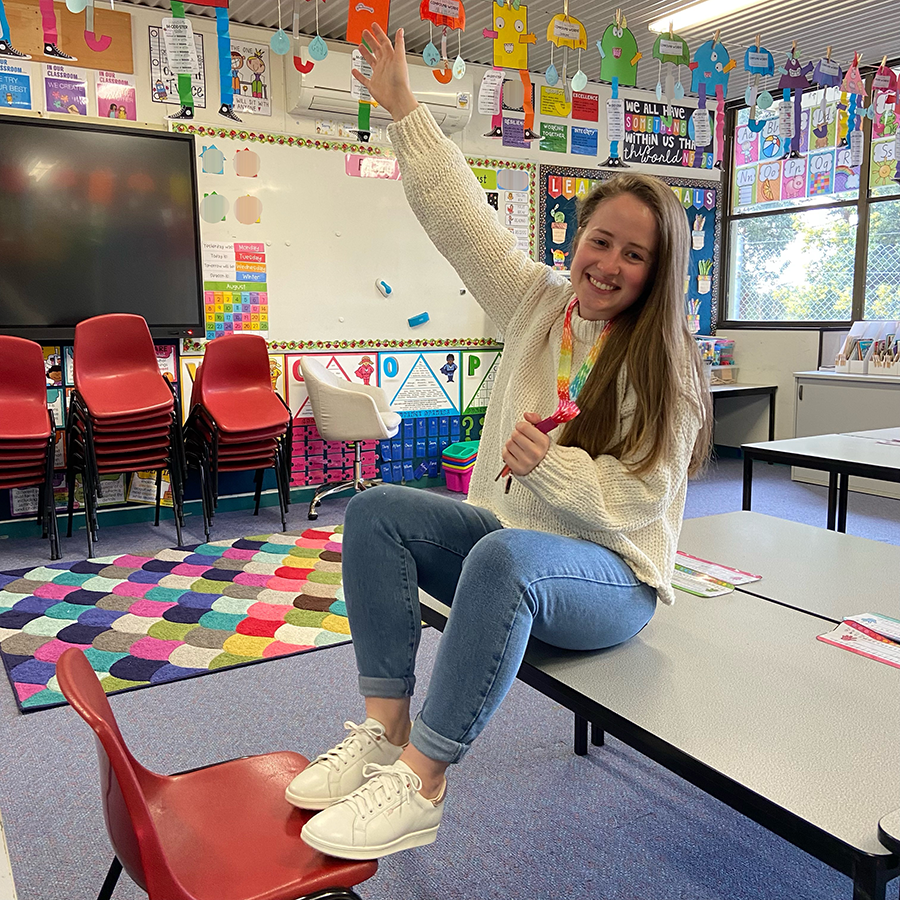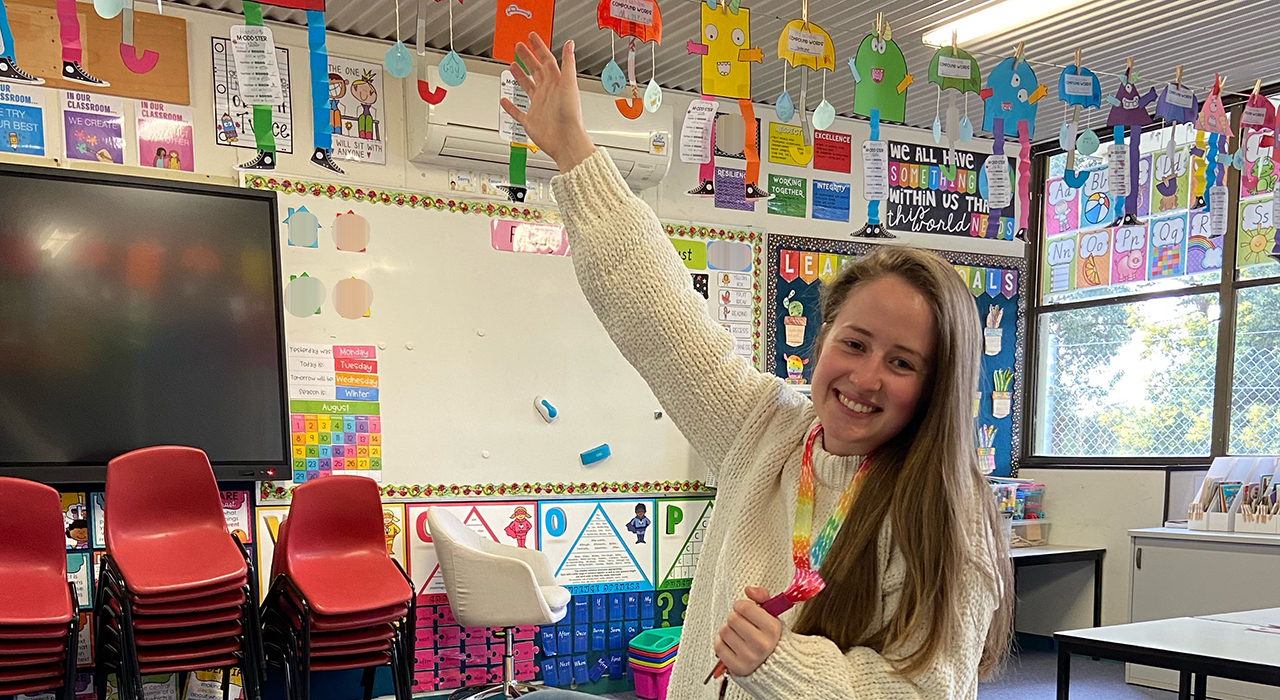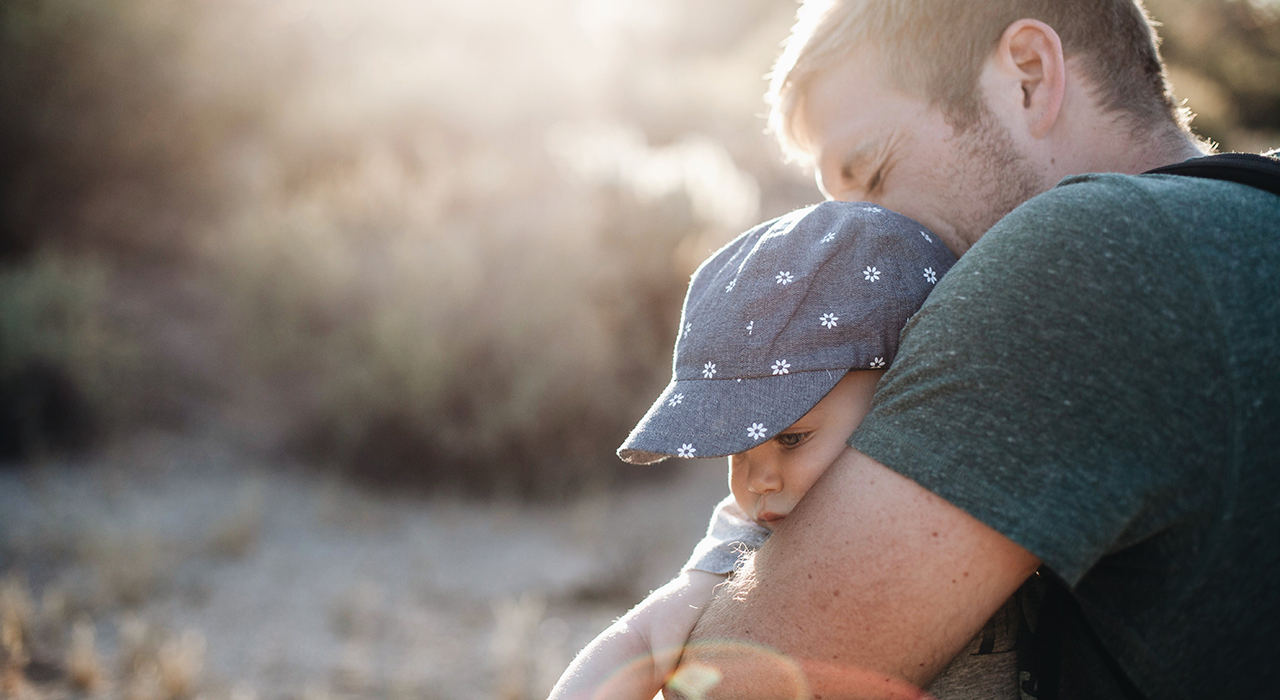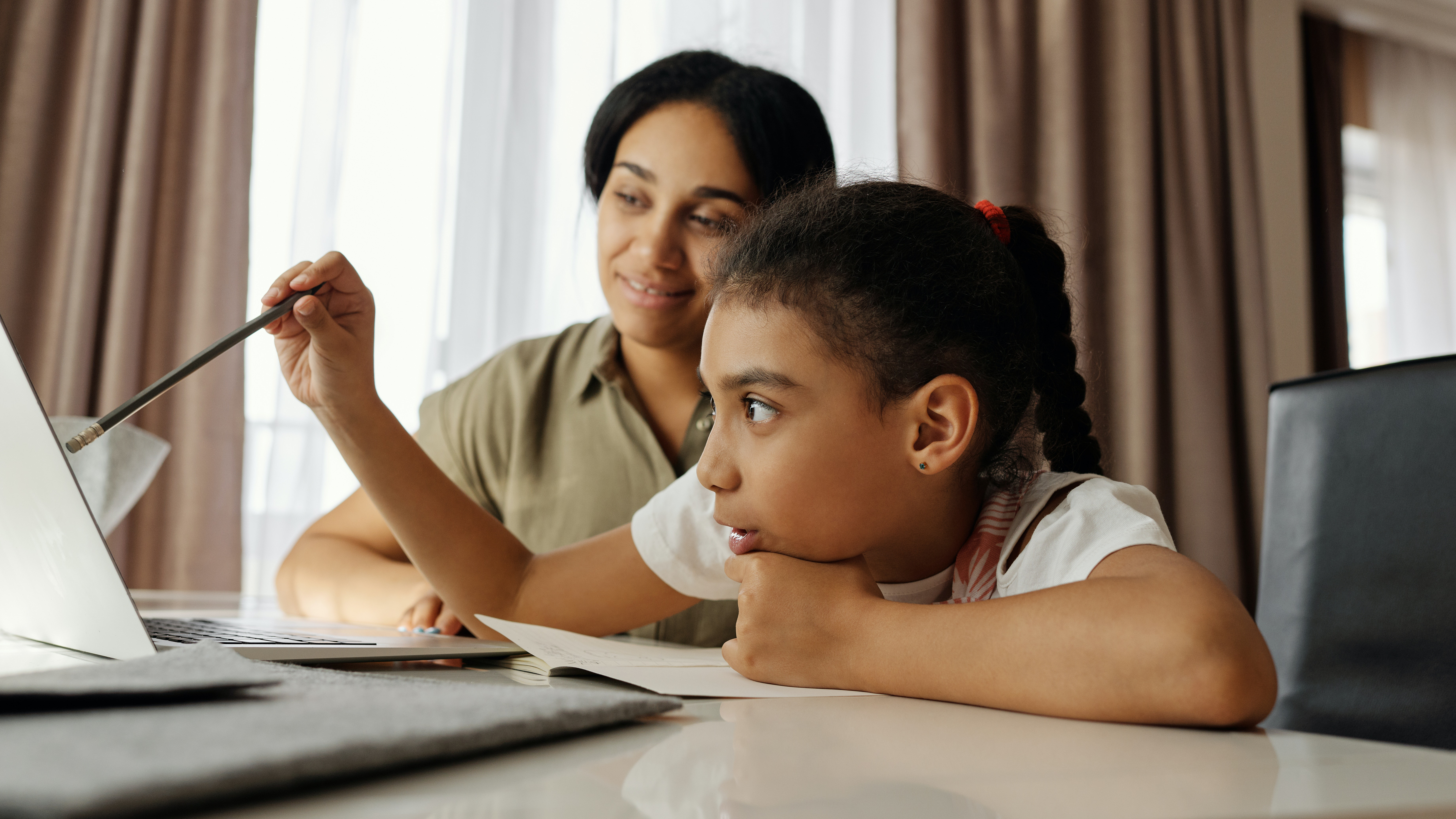Growing up, my grandfather would always say to me "reading, writing, arithmetic, Cassie. The 3R’s are incredibly important". He wasn’t wrong. These crucial, foundational skills are paramount to the development of a child and overall success as an adult in the real-world. However, unlike my grandfather who grew up in the 40s, I grew up in a vastly different world. A different millennium! And in this world, children need and deserve a whole new set of skills.
I was fortunate to grow up in a world where mental health was becoming a topic of discussion and there was an emerging acknowledgement of mental health conditions. But there’s still so much to do, and as a primary school teacher, I see the rising challenges children are experiencing.
That’s why I feel incredibly privileged to be working alongside Smiling Mind and The Decjuba Foundation to bring awareness to children’s mental health and wellbeing through the Smiling Mind Generation.

Mental health challenges among children are rising, and I see that first-hand as a teacher
In Australia, half of all adult mental health challenges emerge before the age of 141. This is the age group I spend my time within my role. I often wonder why more isn’t being done to provide intervention to these children to help lower these confronting statistics.
Since the pandemic, the incidence of anxiety in the classrooms I’ve worked in has skyrocketed. There are more support staff in classrooms than ever before and it’s almost at the point now where I’m informed of who doesn’t struggle with mental health, rather than those who do.
At one school I was teaching at recently, I was excited to see I’d been assigned Social and Emotional Learning (SEL) for a session. I spoke with the teacher next door to ask for the resources and he laughed, saying they don’t really care about the program and instead suggested I give the class free time instead. To say I was deflated is a gross understatement.
In 2015, three of the five leading causes of the total burden of disease for children aged 5-14 were all mental disorders1. And yet, even with phenomenal, easy to implement curriculums available, some schools are blatantly ignoring the imperative role wellbeing plays in the classroom. I don’t want to imagine how inflated those 2015 numbers are now in our post-pandemic world.
Academic success valued above all else—at what cost?
Having worked as a full-time and relief teacher, it has challenged me to see how results-driven some schools are and how detrimental that can be on our young people. While mental health, SEL, and programs like Smiling Mind are becoming much more spoken about within the schools I’ve worked at, my experience is that they are still treated more as trivial time fillers rather than integral inclusions within the curriculum.
At some schools, NAPLAN success outweighs the mental wellbeing of students and often they are pushed to breaking point (at the ripe age of 8!) to produce results that are complementary to the school they attend.
I was personally told to encourage some students to ‘be sick’ the day of the test as they wouldn’t produce optimal results.
I was also told to ‘drop’ wellbeing lessons for the whole term to strictly focus on NAPLAN as that’s what mattered most: the results; the numbers; the praise in the local newspaper. But at what cost?
With immense pressures inside and outside the classroom, social media, and a lockdown (or seven) all thrown into the mix, I’m not surprised that rates of mental health conditions and challenging behaviours are increasing in classrooms.
My five favourite ways to boost positive mental wellbeing in the classroom
I know first-hand how full our curriculum is; how demanding certain schools can be for those results; how, often, there isn’t time to drink your coffee when it’s hot or make it to the bathroom before the bell.
I know how anxiety-inducing the notion of adding yet another thing to your schedule can be. So rather than throw a curriculum at you, I’ve compiled five of my favourite ways to boost positive mental wellbeing into the classroom—without any fuss. I hope they’re helpful for you and your children/students.
1. Display emotion postersAs adults, verbalising how we’re feeling comes naturally—most of the time. We’ve developed a comprehensive vocabulary and can distinguish the difference between anger or frustration, happiness or elation, surprise or fear, and so on. However, children often haven’t yet developed the ability to specifically identify how they’re feeling, least of all the ability to name it. |
2. Relationships, relationships, relationships (my 3R’s)In my experience, relationships are truly at the core of a successful classroom. If improving the wellbeing of students is at the forefront (which I hope my fellow educators would agree!), we simply can’t make a positive difference unless we focus on fostering positive relationships. Would you want to share your feelings with someone who doesn’t make an effort to get to know you? I wouldn’t! We can’t assume students will divulge how they’re feeling to any adult—they need to trust they will be cared for in this incredibly big and sometimes frightening world. That’s why we need to show a genuine interest in them, their well-being and who they are as little humans! The first few weeks of school is your golden window of opportunity to develop these relationships. Push aside curriculum demands and focus on those relationships. With positive relationships comes everything else. If your students feel loved, heard, and safe with you they will do well. |
3. Practising gratitudeIn my classroom, I started to check-in with my students each morning to see how they were and to ask them what they’re grateful for. At first, most would say ‘my PS5’ or ‘my car’, but with meaningful discussion, we began to tune into things such as shelter, family, friendships, and access to education. I practise gratitude myself each night and I discuss this with my students. Simply put, if they hear me talk about how I do it, they become more inclined to take part. Gratitude has a myriad of benefits that include: helping improve patience3, the development of positive relationships and in some cases, can improve long term happiness by more than 10%. A simple way to discuss gratitude in class (without taking up too much time) could simply be with a daily question the students respond to when marking the roll. |
4. Remembering that kids need to be kidsHave you ever tried to learn something new as an adult with no experience? Day after day? It’s exhausting! These experiences are what our children face daily. Their young brains are digesting so much information. New spelling words; how to vertically add (and subtract); how to sound out words (some with silent letters!); navigating friendships and disagreements—all whilst being expected to sit perfectly on the mat and absorb every drop of information provided to them from 9am-3pm. It’s important to remember that a day at school is cognitively draining and children need time to recharge their batteries! Hours upon hours of homework or extracurricular activities can strip the rest time they so desperately need. I have lots of parents worried their children aren’t doing enough or that they could do more. My answer most of the time: let them be kids. Trust the process! |
5. Getting outsideI want to preface this by saying, I know how necessary it is to put on an episode of Bluey when your social battery is on 1%. I get it. We’ve all been there (and will continue to be sometimes) but since I’ve made the switch to outside brain breaks and games rather than screen ones I’ve seen SO much improvement. Kids love going outside, even if it’s raining and freezing cold. Go figure! I’ve found that my relationships with the kids have improved, especially if I join in and run around with them. Their ability to refocus after a game is easier and the students who have lots of energy, can get it out without interrupting the class through heightened behaviours. The ability to play outside can lower cortisol and expose them to vitamin D which has proven benefits in lowering anxiety, improving cognition and overall well-being. In my experience, no year level is too old for a classic game of Octopus, so try and swap out a screen-time break for the good old outdoors when you can! |
For more educator wellbeing resources and tools, check out the Smiling Mind Generation hub! There are a range of assets available for free, including classroom posters, SEL activities and stress relief exercises for teachers.
Check them out!














.jpg)



